
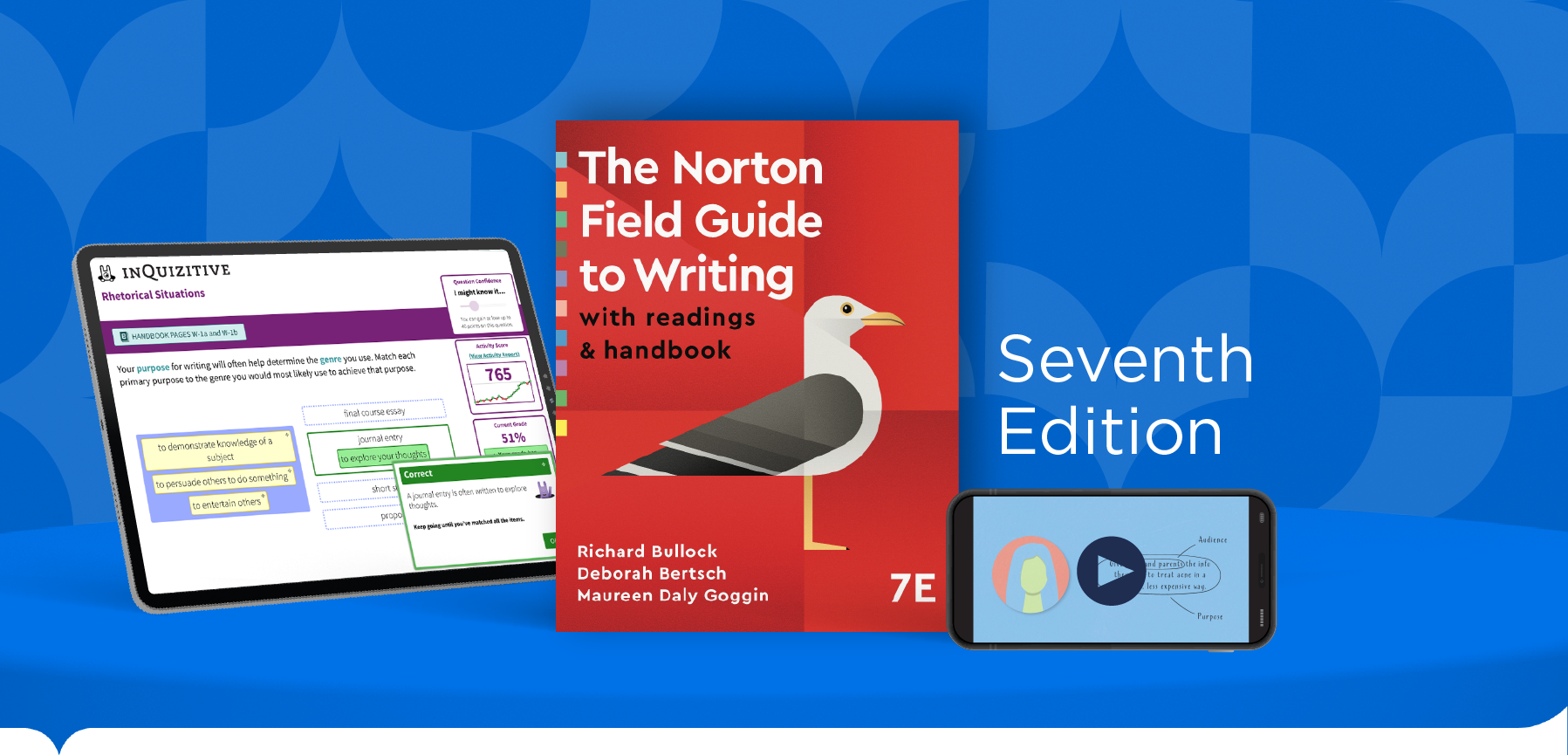
The best-selling rhetoric that is as flexible as writing and teaching is today.
Instructors choose to assign The Norton Field Guide to Writing more than any other rhetoric because it supports a variety of teaching contexts and approaches—from genres to rhetorical strategies, co-requisite to dual enrolled, online to in-person, one semester to two—in a user-friendly design that makes it easy to navigate in any format.
Features of the Seventh Edition
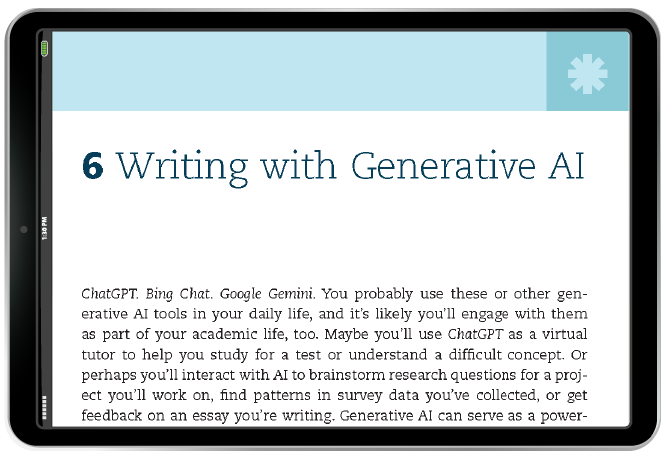
Equip students with an academic toolkit that works for them from day one of their college experience.
The Seventh Edition expands its advice on reading and learning online; adds a new chapter on using generative AI tools to support the writing process; and incorporates new prompts to reinforce remix and transfer by asking students to consider “more ways to approach” each genre.
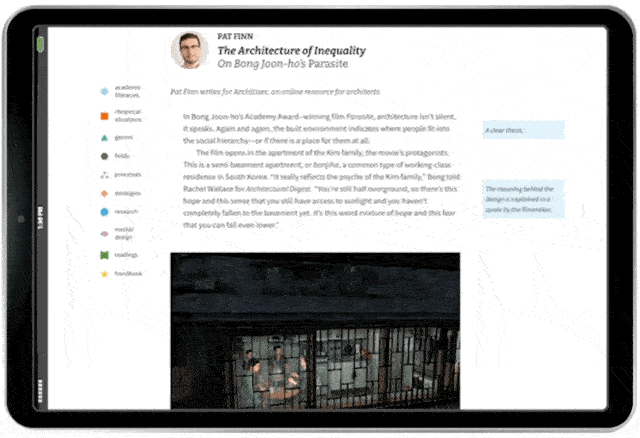
Grow careful, critical readers—online and on the page.
Authentic model essays from student and professional authors are supported by advice on annotation and active reading, including a new ebook chapter on digital annotation.
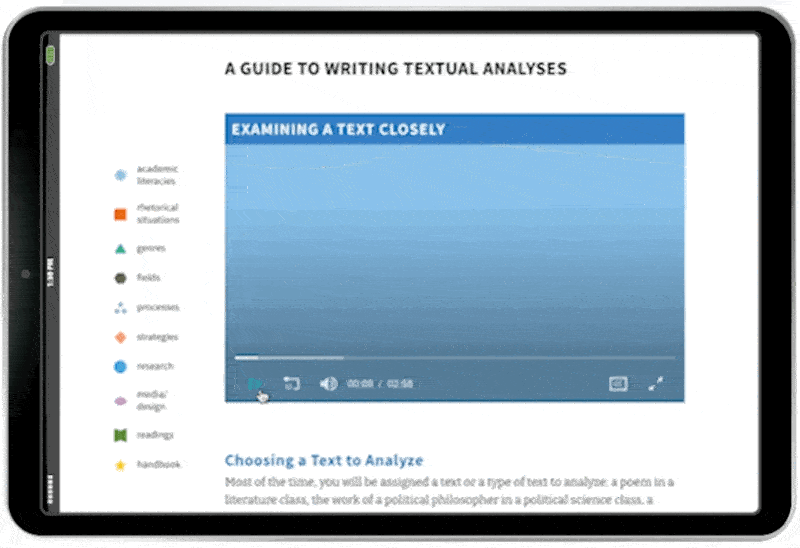
Incorporate The Norton Field Guide’s most popular resources—now expanded.
Embedded throughout the ebook and InQuizitive activities, the brief animated videos—30 total, 16 new—now also cover peer review, summarizing, responding to counterarguments, and more, while instructors will have even more sample assignments on Norton Teaching Tools.
Hear from coauthor Deb Bertsch about how the Seventh Edition helps students develop key academic literacies.
Available in Four Versions
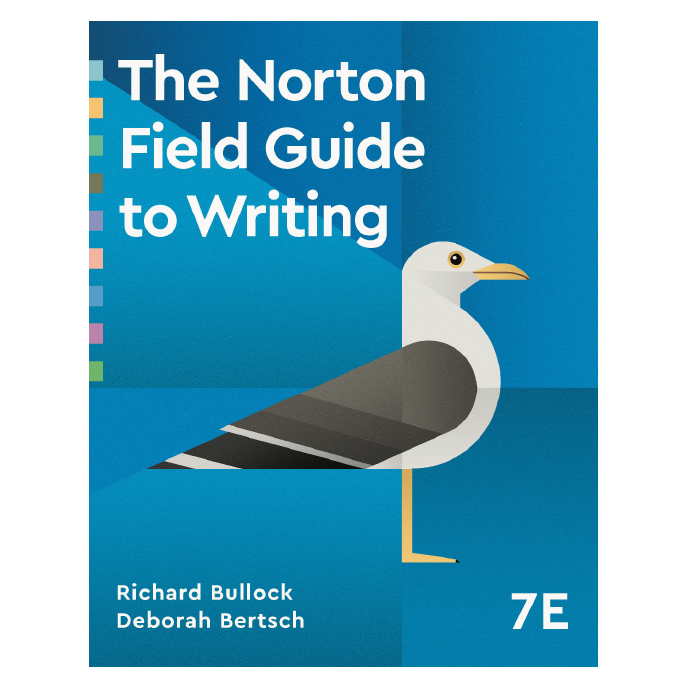
Core edition
The briefest option, this is the rhetoric-only version (which covers Academic Literacies, Rhetorical Situations, Genres, Fields, Processes, Strategies, Research, and Media/Design) and includes 28 readings.
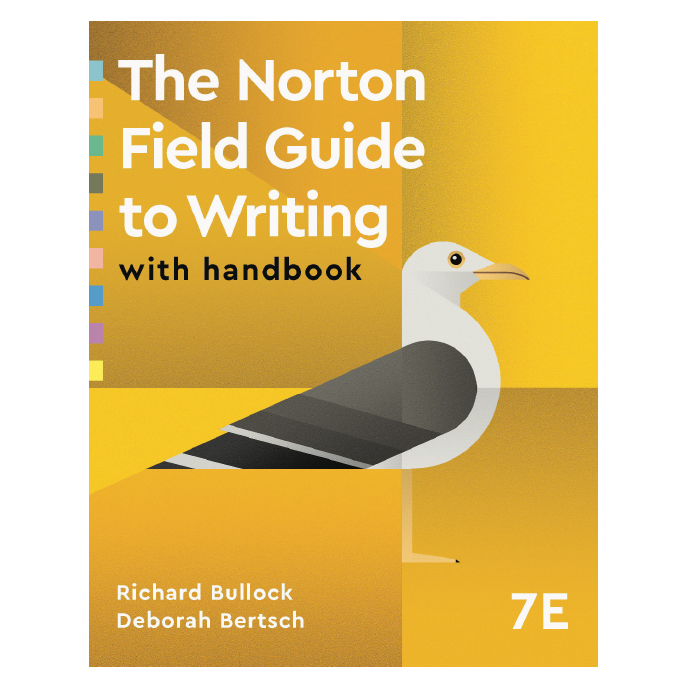
with handbook
This version includes all of the rhetoric chapters and the 28 readings from the core version along with an additional handbook part covering sentences, language, and punctuation/mechanics.
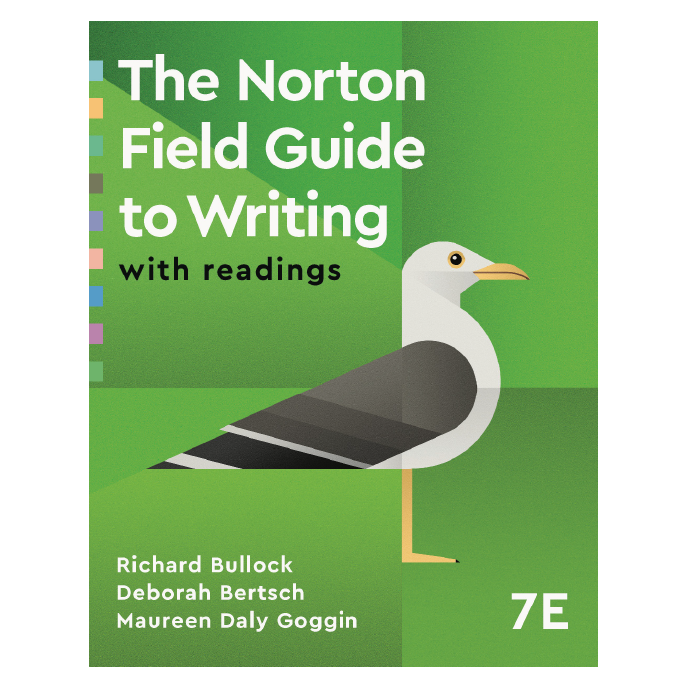
with readings
This version includes all of the rhetoric chapters from the core version along with an additional anthology of readings (for 76 readings total).

with readings and handbook
The most popular option, this version includes all of the parts for the rhetoric, anthology of readings, and the handbook.
Meet the Authors

Richard Bullock
is emeritus professor of English at Wright State University, where he directed the writing programs for 28 years, designed the university's writing across the curriculum program and Introduction to College Writing Workshop, and was awarded the Trustees' Award for Faculty Excellence, Wright State's highest honor. In addition to The Norton Field Guide to Writing, he is a coauthor of The Little Seagull Handbook.

Deborah Bertsch
is Professor of English at Columbus State Community College, where she’s also served as writing center coordinator and dual enrollment lead faculty. A past chair of the Two-Year College English Association-Midwest, Bertsch has won a Diana Hacker Outstanding Program award from NCTE, a Campus Technology Impact Award from Campus Technology Magazine, and a Distinguished Full Professor Award from her college.

Maureen Daly Goggin
is Professor emerita of English and former associate chair of the English Department at Arizona State University, where she taught and has taught several years at the University of Graz in Austria. She has directed several of the writing programs and the Ph.D. program in Rhetoric, Composition, and Linguistics and received the ASU Alumni Association Faculty Teaching Award. She is the author and editor of over a dozen scholarly books, including Authoring a Discipline: Scholarly Journals and the Post-World War II Emergence of Rhetoric and Composition (2000) and Women’s Ways of Making (2021) with Shirley Rose.
Instructors: Receive Digital Access
What Instructors are Saying
“It is flexible to be useful for many different teaching styles, thorough enough to cover course demands, and easy for both the instructor and students to use.”
Nancy Gold
Northern Michigan University
"This book has almost anything a writing instructor needs to teach a first-year writing course. The concise chapters and annotated student examples are incredibly helpful."
Amber Harrison Mabus
Holmes Community College
“The book is very accessible to first-year students, and they find the explanations helpful.”
Ryan Muckerheide
Lakeland Community College


Copyright © W. W. Norton & Company, Inc. 2026








